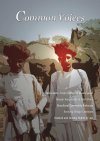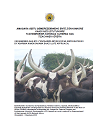Biocultural Community Protocols: A tool for pastoralists to secure customary rights to the commons?
Description of how the Raika of Rajasthan created a biocultural protocol

Download document
Description of how the Raika of Rajasthan created a biocultural protocol

Description of how the Raika of Rajasthan created a biocultural protocol

Description in Nkore language of Ankole cattle, compiled by herders in Nyabushozi, Kiruhura District, South Western Uganda. Contents:
1. Description of Ankole cattle and breeding area
2. Social and cultural context
3. Livelihood significance
4. Management and breeding
5. Population trends
